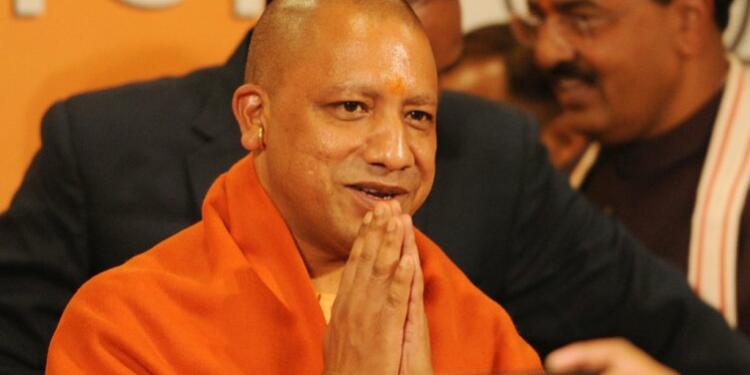On Sunday, Uttar Pradesh CM Yogi Adityanath announced a Rs 25 per quintal hike in the state-advised price(SAP) of sugarcane in the state for the 2021-22 season. The Sugarcane industry in UP was collapsing,until Yogi came to power and changed the face of the industry.
Read more: Yogi Adityanath will make it rain
This decision by the Yogi Government came a day before the ‘Bharat Bandh’ called by the Samyukt Kisan Morcha, which makes it even more significant. The price hike is the highest during the tenure of the BJP Government in UP for sugarcane farmers.
CM Yogi further discussing the benefits of the price hike said, “This will provide 8% additional income to sugarcane farmers and transform the lives of 45 lakh farmers in the state, 119 sugar mills might be operated, and they are going to be linked with ethanol.” He added.
Read more: Big boost for Sugarcane farmers’ income as Modi govt raises Ethanol prices
He also noted that “During the COVID-19 pandemic, the sugar industry had come to a grinding halt in Brazil, which is the biggest sugar producer in the world. More than half of the sugar mills in Maharashtra and some mills in Karnataka were also closed down but the UP government ran all 119 mills.”
One of the major agendas of the Bharatiya Janata Party for the 2022 UP elections is working for the Farmers’ welfare and CM Yogi reassured that the BJP will stay committed to the same. After more than a year of protest and unrest against the Central Government’s newly introduced Farm Laws, Union Minister Dharmendra Pradhan claimed that “the party is committed to double farmers’ income, be it by purchasing agricultural produce at MSP, promoting organic farming or spending Rs 1 lakh crores on-farm marketing infrastructure”. Before the recent Bharat Bandh, Union Agriculture Minister Narendra Singh Tomar on Saturday also appealed to the farmers protesting at Delhi borders to call off their protest, and to indulge in talks with the government instead.
UP’s sugar industry worse crisis under Samajwadi Party
In UP agriculture is a major industry with three out of four rural households depended on the same. This makes agricultural reforms a key agenda in one of India’s most fertile belts. The agriculture and allied sector in UP recorded the slowest compounded annual growth rate of 2.9% below the national growth rate of 3.7 % for nine years under the Samajwadi Party and BSP between 2004-05 and 2012-13. 21 sugar mills in the state were closed down during the previous BSP regime and 11 were closed during the Samajwadi Party rule.
Sugar stocks had reached their historic low under the SP government; there were no buyers for the same. The sugar industry had for long asked the state “to link sugar and sugarcane prices higher the price of sugar in the market, higher the price should be at which mills buy sugarcane from farmers and vice versa” which was rejected by the Akhilesh Yadav government, though Maharashtra and Karnataka had successfully adopted it.
Banks too had started to shun the sugarcane industry during the SP regime. There are about 50 million people in Uttar Pradesh who depend on sugarcane for their livelihood. This makes it a politically sensitive issue yet the SP government couldn’t revive this industry nor safeguard the farmer’s welfare from facing their worse ever crisis.
Read more: Akhilesh Yadav blames CM Yogi for the failures of SP government
The Yogi government in Uttar Pradesh had managed to clear “almost 85% of its cane dues for the 2020-21 season, which is by far, the best performance by the sugar mills in many years,” in the country’s biggest sugar producing state. The boost in the agriculture sector is an indicator that the policies by the government are being implemented well on the ground.
Yogi Adityanath is one such political leader who lives up to the promises he made to his people. The Yogi government has single-handedly saved the sugarcane industry and protected UP’s farmers’ welfare.
